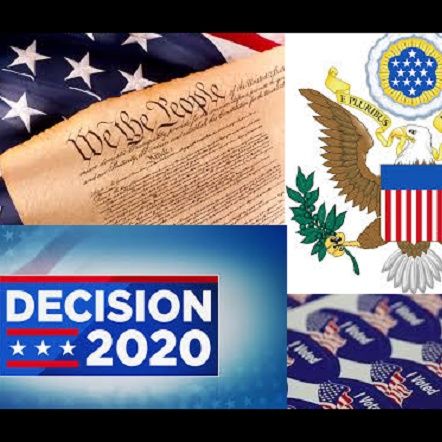Just What Does the Constitution Do in the Case of a Tight Election

Scarica e ascolta ovunque
Scarica i tuoi episodi preferiti e goditi l'ascolto, ovunque tu sia! Iscriviti o accedi ora per ascoltare offline.
Descrizione
Just What Does the Constitution Do in the Case of a Tight Election? Since 1789, there have been 58 presidential elections. The Supreme Court was directly involved in settling a...
mostra di piùSince 1789, there have been 58 presidential elections. The Supreme Court was directly involved in settling a dispute in the 2000 contest between George Bush and Al Gore, and five Justices sat on a commission that decided the 1876 race between Rutherford B. Hayes and Samuel Tilden.
https://youtu.be/rDiSGBjW_m0
Other than that, the Court can get involved in settling disputes about the electoral process, such as about gerrymandering and voting rights, but it is rare for a presidential election to be disputed after Election Day in the nation’s highest court.
The 2000 and 1876 elections were disputed over vote counting and the legitimate slates of electors chosen for the Electoral College. In the recent 2000 dispute, Bush led Gore by a narrow margin in the state of Florida when the popular votes were first counted. Gore disputed the vote count and process; ultimately, the Supreme Court decision in Bush v. Gore that using different vote-count standards within Florida violated the 14th Amendment’s Equal Protection Clause and that a vote-recount couldn’t be completed by a December 12 deadline. (Ginsburg was on the minority of both parts of the decision.)
The 1876 scenario was unique in that the presidential election saw disputed groups of electors submitted by four states. Each of the states, Florida, Oregon, Louisiana, and South Carolina, sent two rival slates of electors to Congress to be counted. Since Congress was deadlocked on party lines, it negotiated a compromise solution: a special commission of 15 people to decide the election. The commission consisted of five Senate members, five House members, and five Supreme Court Justices. In the end, it was the vote of Supreme Court Justice Joseph Bradley that gave the election to the Republicans as part of a compromise to end Reconstruction.
An 1887 law changed how Congress can settle such a dispute without invoking a special commission including Supreme Court Justices in the process. The House and Senate would each serve as a referee, with the governor of the state in dispute as a tie-breaker if Congress can’t agree on which slate of rival electors to choose.
So how could the 2020 election wind up in front of the Court?
Currently, the specter looms of a potential court fight over vote recounts in states where the results are very tight.
According to the National Conference of State Legislatures, 20 states and the District of Columbia have automatic recount provisions that kick in when elections are very close, and 43 states allow losing candidates to ask for a recount.
And any dispute in the lower court system can wind up in the Supreme Court.
Complicating that disputed-voter scenario is if there was a split on the Supreme Court.
The more politically cynical court watcher could conclude that the court would favor a Republican candidate, but in the unpredictable 2020 election, it would be hard to even guess at the Court’s possible voting in that scenario.
Even Though Donald Trump has added so many new justices in his short 4 years in office.
Today the #Qiew is going to discuss the Constitution and give our take on the matter.
#Qiew #GoRight
https://www.spreaker.com/user/9922149/just-what-does-the-constitution-do-in-th
Informazioni
| Autore | Peter Boykin |
| Organizzazione | Peter Boykin |
| Sito | - |
| Tag |
Copyright 2024 - Spreaker Inc. an iHeartMedia Company
